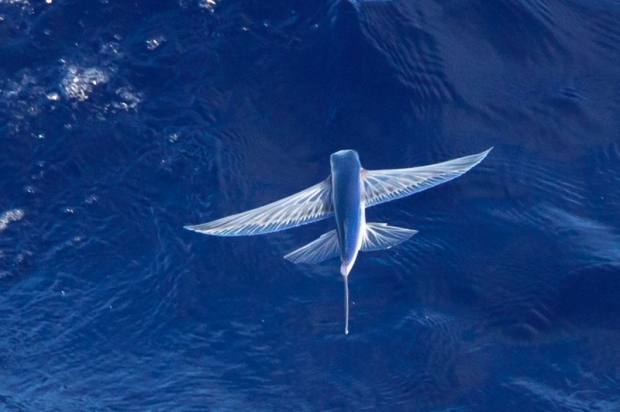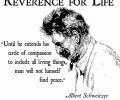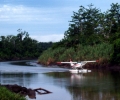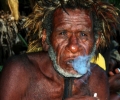Coming to America
Try to recall your life events during your first three years, you will get either none or tiny fragments. Our memory records everything we see, hear, and feel in our life time, but it only allows us to recalls the event after 5-year old—not all of them with the same clarity; in fact, many are missing. Living in America for one and a half years does not leave many vivid events in my memory; without help from the note, I would not be able to write more than a page. In contrast, I have written the events in my first three years in Papua on 100 pages of A4 single-space, and almost all events stay vividly in my memory. What make them different?
I was nervous looking at the Customs Officer behind the counter. He was flipping my passport—there was only one foreign stamp on it: the Singapore Customs—and reading my F-1 visa, which was glued to the passport. For the last three months I had been dreaded of being forbidden to leave Indonesia.
“What is the purpose of your visit to America?” he asked. Obviously, he did not know that F-1 visa was for student.
“Study,” I answered. He stared at me, making me more nervous. I felt the time was still, hoping he would not ask for the thing I did not have. It would be the end of the world, if he did. Then, he picked up the stamp, rubbed it on the stamp pad, and pressed it on my passport. It ended the nightmare had hunted me for months, but I tried not to look excited, fearing he would change his mind.
It was ten years after 1984 (George Orwell’s novel) but the Big Brother Soeharto still ruled Indonesia. He required all civil servants and scholars to have a certificate of the course on Pancasila (Five Principles). The course, in Soeharto’s mind, would make them immune from foreign political and cultural pollution, make them good citizens, etc. I had been critical with all his oppressive policy and act, and managed to escape from the course. But I had heard that without the certificate, no citizen would be allowed to study abroad, the nightmare that ended at the Biak International Airport, Papua.
I switched from Garuda to American Airlines at the Los Angeles Airport. The air flight attendant gave me some kind of nuts—hard to bite; pretzel the name I learned later—and a small glass of water. The flight to Dallas was more than an hour; I expected the airline—like in Indonesia—would provide dinner to passengers; it turned out pretzel was that all I had until we landed in Dallas. Here, I waited for the whole night because the flight to Baltimore was scheduled at 7:00 am. Being cold, hungry, and alone in the huge airport terminal was vivid but not sweet memory.
I was very anxious at the baggage claim lobby of the Baltimore Washington International. I kept looking out through the glass door and was relieved to see Ron Anthony waving his hands. Being the first time in a foreign country alone—2-hour in Singapore was not considered abroad—was scary.
“Welcome to America,” Ron hugged me. We had not met since he retired six months before. We talked a lot about what had happened during those six months, but my attention was divided to the outside view. The roads were so wide and smooth, they crossed in different levels—there were not such roads in Indonesia then. And there were many huge and long trailer cars. However, the most different was there was no house by the roads: fuel stations and fast food places only.
I started to see the houses when we exited the main roads. All of them were good because Ron lived in a suburb of Maryland. “Here we are,” we stopped at one of the houses and he pressed the horn.
“Ating, glad to see you make it,” I still recognized Joan’s voice at the door and she gave a warm hug.
All the houses in the complex looked the same and so were the distance between them. American houses of the middle class seemed uniform: first floor for sitting room, dining room, kitchen; second floor for bedrooms. And I got one facing the front street.
We had lunch at the back porch. I felt exhausted and excused to the bedroom, but came back after hour. They were watching television in the sitting room.
“Why did you rest so short?” Joan asked.
“I could not sleep.”
“He is too excited,” Ron said. He was right. I was very happy to be in America.
I took the newspaper on the table; it was so thick. The headline was the final soccer match of the World Cup, July 2, 1994. Brazil beat Italy and won the championship for the fourth time.
Ron asked me about the funding for my study. “Where is the money now?”
“In my room upstairs,” I said.
“Cash?”
“Yes.”
“Silly! You were lucky, the Customs did not hold you.” There was a rule that foreigners were not allowed to bring in cash more than $15,000. Ron took me to a bank to exchange my money into traveler’s check next morning.
At noon, William and Katherine Ward, my best friends in Yogyakarta, came to take me out. We had not met for six years. Katherine was in late pregnancy, the reason they did not invite me to stay with them. We had lunch in a Chinese restaurant and then went to a mall. I was amazed with mall, huge and luxurious—there was not any mall in Indonesia then. On the other hand, the cinema where we watched ‘Forest Gump’ (Tom Hank) was much smaller than the one in Indonesia.
The next evening, we had NAMRU-2 reunion with Michael Bangs and Ellen Andersen at Chesapeake Bay. Mike was entomologist, Ellen was a parasitologist. The restaurant was famous for its grilled crabs. It was so good talking about the days we had spent together in the Star Mountain Range, Papua.
We came home late in the evening. Joan had gone to bed. “Ating, there is message for you in answering machine,” Ron told me. ‘Must be from Katherine or William,’ I thought. It was not. I recognized the voice I had not heard for eight years. I dialed the number mentioned in the machine and we met on the next day. We used to be neighbors in Yogyakarta and the meeting brought all the memory back, and left me a hollow afterward.





